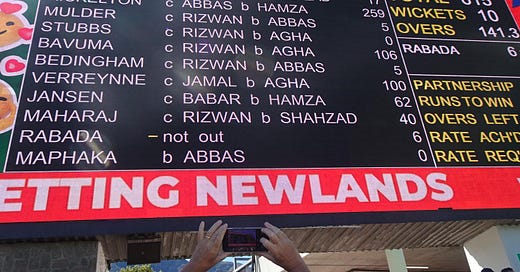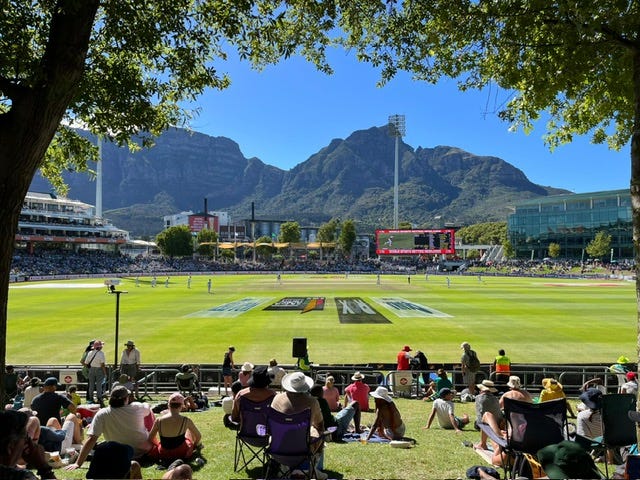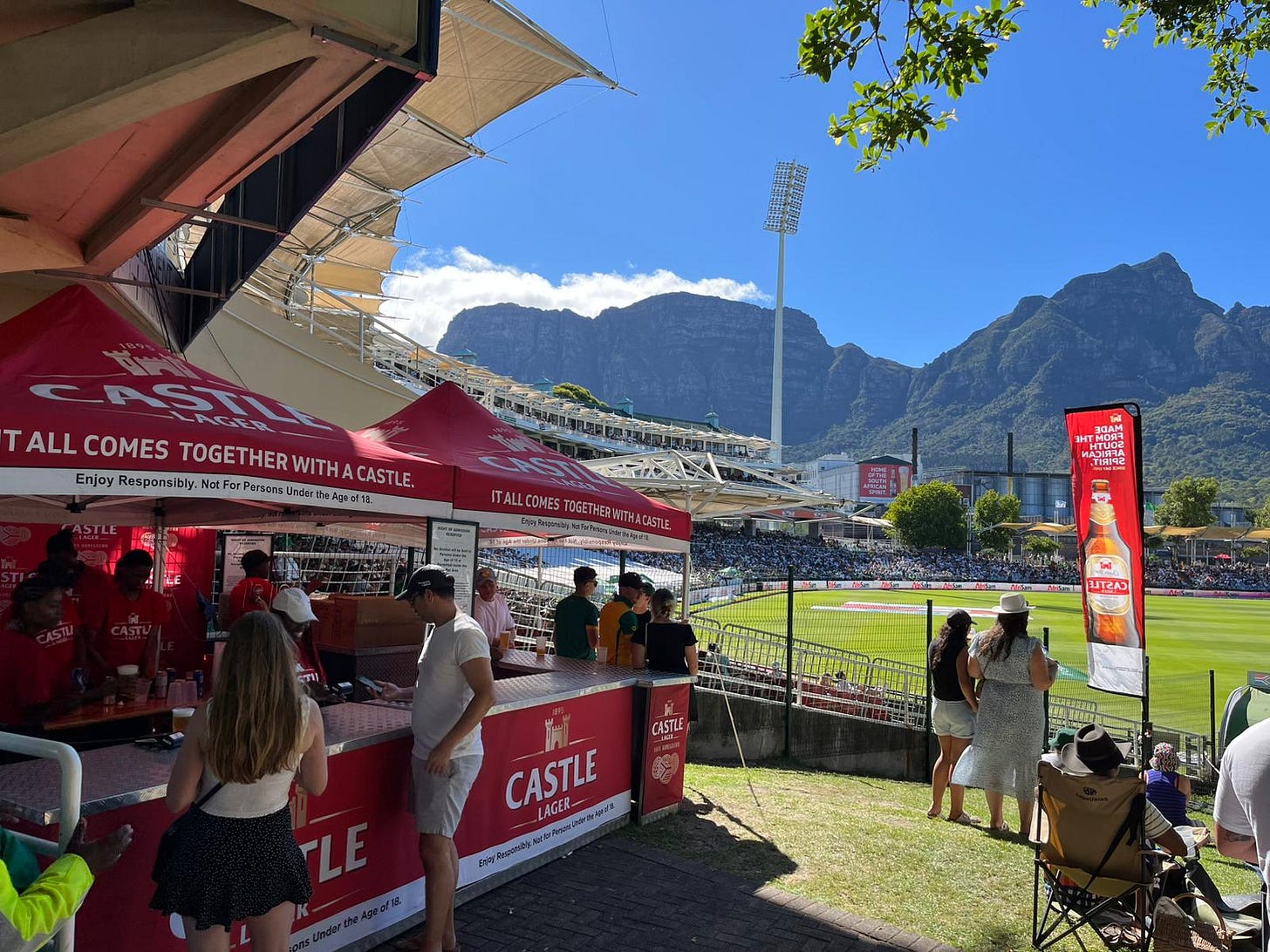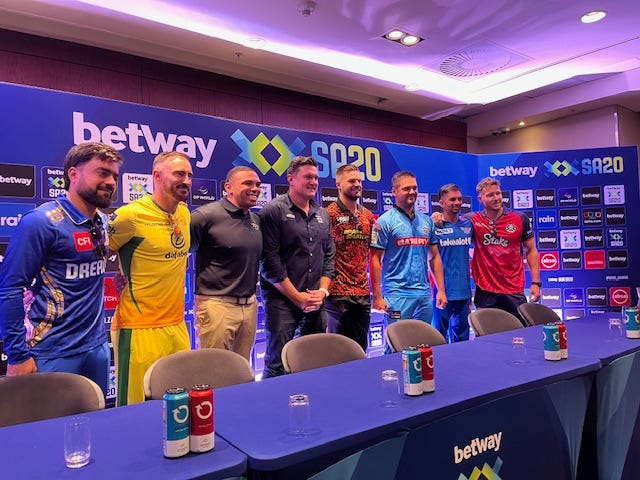Test Cricket hasn’t been so buoyant and vibrant in South Africa since 2012 when the Proteas lifted the World Champion Mace to confirm their status as the best team in the world. There wasn’t a single dissenting voice, anywhere. They were indisputably one of the best Test teams of all time.
Having beaten Australia in Perth in November 2012 to claim their second successive series win down under, Graeme Smith’s team returned home to beat New Zealand 2-0 and Pakistan 3-0 to complete six successive victories, three short of South Africa’s longest ever winning streak of nine, achieved a decade earlier.
Again, it began with a victory against Australia albeit a consolation one at Kingsmead in March 2002 to lose the series 2-1 under Shaun Pollock’s captaincy. The following season, under Smith’s leadership, they beat Bangladesh, Sri Lanka and Pakistan twice each at home before travelling to Bangladesh and earning two more victories.
The current team, strangely without fanfare or suitable acclaim, have won seven Tests in succession, the second-best sequence in South Africa’s Test history, and it would surely have been eight had rain not denied them a win in Trinidad six months ago.
Coach Shukri Conrad has understandably been given considerable credit for the Test team’s success and qualification for the World Test Championship final. He is engaging and entertaining in equal measure and has the vital coach’s knack of creating an enjoyable environment for the players. ‘Leave your egos at the door’ will make a suitable epitaph when his international reign ends – hopefully no time soon.
But captain Temba Bavuma, equally strangely, has yet to receive the recognition his influence deserves. Beginning with the Boxing Day Test against India just over 12 months ago, Bavuma has won eight of his nine games in charge, a better win ratio than any other captain in history. Of any other country.
Australians Warwick Armstrong, Steve Waugh and Donald Bradman finished with winning percentages of 80%, 71.9% and 62.5% respectively while Bavuma, who should have plenty of captaincy matches to come, is currently on 88.88%.
Bavuma may be an enigma to some, an under-achiever to others, but he will be judged and remembered in cricket history by his record, as all captains are. Mike Brearley averaged 19 with the bat as England captain but is revered as one of the greatest captains of all time for the results his team achieved, most notably the ‘Botham’s Ashes’ triumph in 1981.
You may question the strength of the opposition, the venues and the eras in which matches were played, but then you would also have to question the relative strength of Bavuma’s team compared to that Bradman’s ‘Invincibles’, Waugh’s ‘Unbeatables’ (or ‘Unlovables’) and even Smith’s team. Bringing the best out of good players may be a greater skill than leading great players to victory. Indeed, turning a group of good players into a team greater than the sum of their parts may be an even more impressive feat.
Take all the mitigating circumstances you like, statistics don’t change. Bare facts laid open to debate and discussion don’t change. Those are the numbers and… cricket history loves numbers.
Bavuma may not be remembered as a great captain in future – but he might be. Of the 30 players used in the Test squad last year, only Kagiso Rabada is a ‘great.’ Smith, including himself, had five in his team; Hashim Amla, Jacques Kallis, AB de Villiers and Dale Steyn with Morne Morkel and Vernon Philander close to that status.
South Africa don’t play another Test match on these shores for a staggering 18 months. They will never again play enough fixtures for players to create an adequately sized body of work to qualify for ‘greatness’ in the traditional sense although Keshav Maharav is well on his way. Even 18-year-old Kwena Maphaka will have to stay fit and motivated enough to play Test cricket for the next 15 years to come anywhere near 100 caps.
Whatever happens in the future, starting with the WTC final against Australia on June 11, now is the time to celebrate and enjoy a brilliant run of victories in the hardest but most rewarding format in the game. It’s white ball cricket only for the foreseeable future with the SA20 kicking off just two days after the second Test.
The ‘Big Three’ are making a take-over comeback, as wealthy autocrats are prone to do. Well, one extremely wealthy autocrat and two preening, very rich acolytes. It’s not the power-grab that grates, it’s the disingenuity. “Two-tier” Test cricket means a painful death for the format in the Caribbean and Bangladesh and an instant one for the ‘tiny three’ of Afghanistan, Zimbabwe and Ireland.
Cricket Australia and its players do, at least, support the comically flawed WTC, as do (did?) the BCCI. Weighted against them by the number of games they play, both embraced the challenge anyway, India reaching the first two finals and Australia winning the second one.
England’s administrators, players and, sadly, media, are too insular and arrogant to even see what the WTC has done for the smaller Test nations, never mind appreciate it. As far as the majority are concerned, the WTC is an irrelevant distraction from their glorious Bazball and the Ashes. A wider-eyed view might reveal that competitive Test with a prize to play for has revitalised the game in at least four countries, perhaps even saved it. England will also benefit from that, if they care to.
Shut up, pad up, Bazball your way to a final and maybe even win it. Then help improve the WTC instead of culling it. Test cricket isn’t just about you, England.








Biting back at the ECB will always be futile while the Indian board has complete control. I’m surprised you would have a go at the ‘arrogant’ players and media of England considering you have gained employment from them in the past. Why is it always the English that get in the neck? I’m tempted to say grow up.
SA not playing home test matches next season is staggering and a joke
This should never have happened
They deserve ateast 4 home test matches every season
Historical grounds like Wanderers and New lands don't deserve this